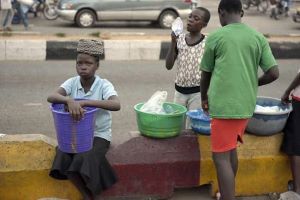The United Nations Children’s Fund, UNICEF, has placed the figure of out-of-school children in Nigeria at 18.3 million.
Following the discovery, UNICEF, expressed concern at the alarming figure. The body, therefore, stated that the new figure places Nigeria as the country with the highest number of out-of-school children globally.
The revelation was made during a two-day Regional Stakeholders Engagement Meeting in Gombe. The event was on Out-of-School Children and Retention, Transition, and Completion Models in the Northeast. The States are Bauchi, Gombe, and Adamawa.
Speaking at the ranking of Nigeria as number on, globally, the Chief of Bauchi Field Office, Dr. Tushar Rane regretted the development.
Rane said, “Unfortunately, this positions Nigeria with the challenge of having the largest number of out-of-school children globally.”
He further highlighted that only 63% of primary school-age children regularly attend school.
While expressing concern on the increasing dropout rates across all genders at the primary level, he noted that only 84% of children transit from primary school to junior secondary education.
Rane, however, attributed this trend to various factors. These included inadequate evidence-based policies, limited budget allocation, teacher and classroom shortages. Other factors he noted are poor infrastructure, cultural norms, health and safety concerns, and child labour.
To address the the out-of-school syndrome, UNICEF is collaborating with the Universal Basic Education Commission to develop programmes that would tackle the challenge. This include the “National Framework of Action to Reduce the Number of Out-of-School Children in Nigeria” and the “Retention, Transition, and Completion Model.”
UNICEF, therefore, said it aims to develop models for reducing the number of out-of-school children. It is also increasing the retention, transition, and completion of adolescents in secondary schools.
“I envisage that after this meeting, we will have clear, targeted, and state-specific strategies that will further ensure that we reduce the rate of out-of-school children and enhance retention, transition, and completion,” Rane added.
source: Vanguard
![]()

